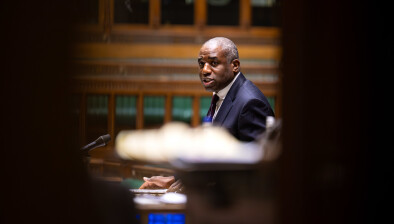Government to propose over 240 amendments to landmark mental health bill

Over 240 amendments to the landmark Mental Health Bill 2024 are to be proposed by the government.
The government will seek to move the amendments, many of which are technical in nature, at committee stage in the Dáil in the coming weeks.
The 202-section bill will replace the existing Mental Health Act 2001.
Mary Butler, minister of state for mental health, said: “I’m pleased to now have secured the approval of my cabinet colleagues of government amendments to the Mental Health Bill, and to progress this legislation in the coming weeks.
“The committee stage debate will ensure this vitally important bill is as robust as possible and I am determined to progress this legislation as soon as possible.
“The enactment of this bill has been a longstanding priority for me and for the government and I look forward to working with colleagues in the Dáil and Seanad to progress towards enactment.”
Ms Butler has asked the Mental Health Commission to begin the development of new standards for Child and Adolescent Mental Health Services (CAMHS) in advance of the commencement of the legislation.
The government says the most significant of the 241 amendments it will propose at committee stage relate to provisions in the bill for the small proportion of adults who are involuntarily admitted to an acute mental health unit and lack capacity to consent to treatment.
The bill as published permits treatment for involuntarily admitted people who lack capacity and do not have a substitute decision arrangement in place without the need for a determination by the Circuit Court for a period of up to 21 days, or while awaiting a determination of the court, if they are a risk to themselves or others.
The proposed amendments will extend the permissible treatment period for a further 21 days, up to a maximum of 42, where it is approved by a second consultant psychiatrist, or while awaiting the appointment of a substitute decision-making arrangement by a court, provided the person continues to meet the criteria for involuntary admission and continues to lack capacity.
The amendments also propose to broaden the criteria for the administration of treatment during such periods beyond risk to self and others to include criteria based on the need for treatment.
Ms Butler said: “The amendments seek to strike an appropriate balance between respecting the autonomy of the individual while ensuring timely access to care and treatment where necessary.
“I am confident the amendments will make the bill stronger, make it easier to implement, and better protect and vindicate the rights of people accessing treatment.”









